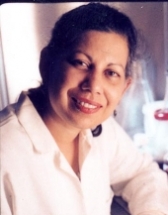Back to Journals » Breast Cancer: Targets and Therapy » Interview: Professor Rameshwar

Breast Cancer: Targets and Therapy
ISSN: 1179-1314
Interview: Professor Rameshwar

Editor-in-Chief: Professor Pranela Rameshwar
Interview with Professor Pranela Rameshwar, Editor in Chief of Breast Cancer: Targets and Therapy
Q: What inspired you to take on the role of Editor-in-Chief for Breast Cancer: Targets and Therapy, and what is your vision for the journal?
Professor Rameshwar: I was raised in a Caribbean nation where healthcare resources, particularly in cancer care, were limited. More importantly the word `cancer’ continues to be considered taboo in several countries, as well as some families in western countries. Hesitance to openly discuss or acknowledge cancer diagnoses and the importance of preventive care poses a significant obstacle to addressing effective cancer treatment. For instance, there is a tendency for generations to inaccurately report family cancer histories.
As I progressed in my scientific career, conducting research on breast cancer dormancy and adult stem cells, I began to ponder how scientific innovations in developed countries could contribute to breast cancer treatment in underdeveloped countries. I was attracted to the journal because of its broad authorship with emphasis on treatment. The articles in the journal have a tremendous positive impact on global healthcare, especially in regions with restricted resources. My journey, combined with the uniqueness of the journal underscores my gratitude to be involved with the Breast Cancer: Targets and Therapy journal.
Q: As the Editor-in-Chief of Breast Cancer: Targets and Therapy, you have witnessed the evolving landscape of breast cancer research. What are your impressions of the emerging generation of research and researchers? Could you share insights on their unique characteristics, the key differentiators between generations, and the values that guide their work?
Professor Rameshwar: I started my scientific career alongside editorial board members who shared similar ethnic backgrounds and were well-established in their respective fields. As graduate programs increasingly prioritize ethnic inclusivity, the journal encourages young scientists to join the editorial team, resulting in a diverse editorial board. Recognizing the potential to drive breast cancer research towards lifelong remission, we are committed to fostering inclusivity and effectiveness. To this end, the journal supports our engagement with patient stakeholders. I am excited about the upcoming plans to incorporate breast cancer advocates into the journal's direction. As an editor, I am mindful that the field needs interdisciplinary research to ensure that the journal consistently presents original scientific content and avoids any repetition of material.
Q: Could you share some of the most noteworthy experiences you’ve had while serving as Editor in Chief?
Professor Rameshwar: I assumed the role of an editor before the journal was indexed in PubMed. We consistently received a steady influx of both review and original submissions. The authors perceived the journal as a source of sustenance. One of the most significant moments for me was the journal's citation in PubMed, closely followed by the attainment of an impact factor.
Q: Are there specific areas within breast cancer research that you believe currently lack adequate research attention at the moment?
Professor Rameshwar: There are two areas of concern – the growing number of male breast cancer, and the increased incidence of breast cancer in younger women. These two areas need robust research, given the absence of conclusive evidence supporting the efficacy of existing studies. It is our aspiration that the journal will be at the forefront of reporting articles on these topics.
Q: Looking ahead, what changes do you anticipate in breast cancer research within the next 5-10 years?
Professor Rameshwar: It is my hope that scientific breakthroughs will pave the way for the long-term remission of breast cancer. This will require aging individuals to have competent immune systems, perhaps with hematopoietic restoration. A competent immune system would circumvent age-induced cancer and prevent the reactivation of dormant breast cancer leading to tertiary metastasis. Additionally, I remain hopeful that the articles submitted to Breast Cancer: Targets and Therapy contribute to addressing health disparities, as there is uncertainty regarding the equality of current treatments among different ethnic groups.
Q: What advice or message do you have for the researchers who are interested in submitting their work to the journal?
Professor Rameshwar: The journal is inclusive with respect to relevance of all areas of breast cancer treatment. We understand that basic research precedes preclinical research, and clinical trials. Submit your findings and you will have a fair review of your article. We encourage authors to contact the journal to submit perspectives on important topics such as effectiveness of trials in countries with mixed population compared to trials conducted in countries with a homogeneous population. We also encourage preclinical studies, translational and basic research in breast cancer. We welcome submissions of articles that address the future direction of the journal, stated above.
